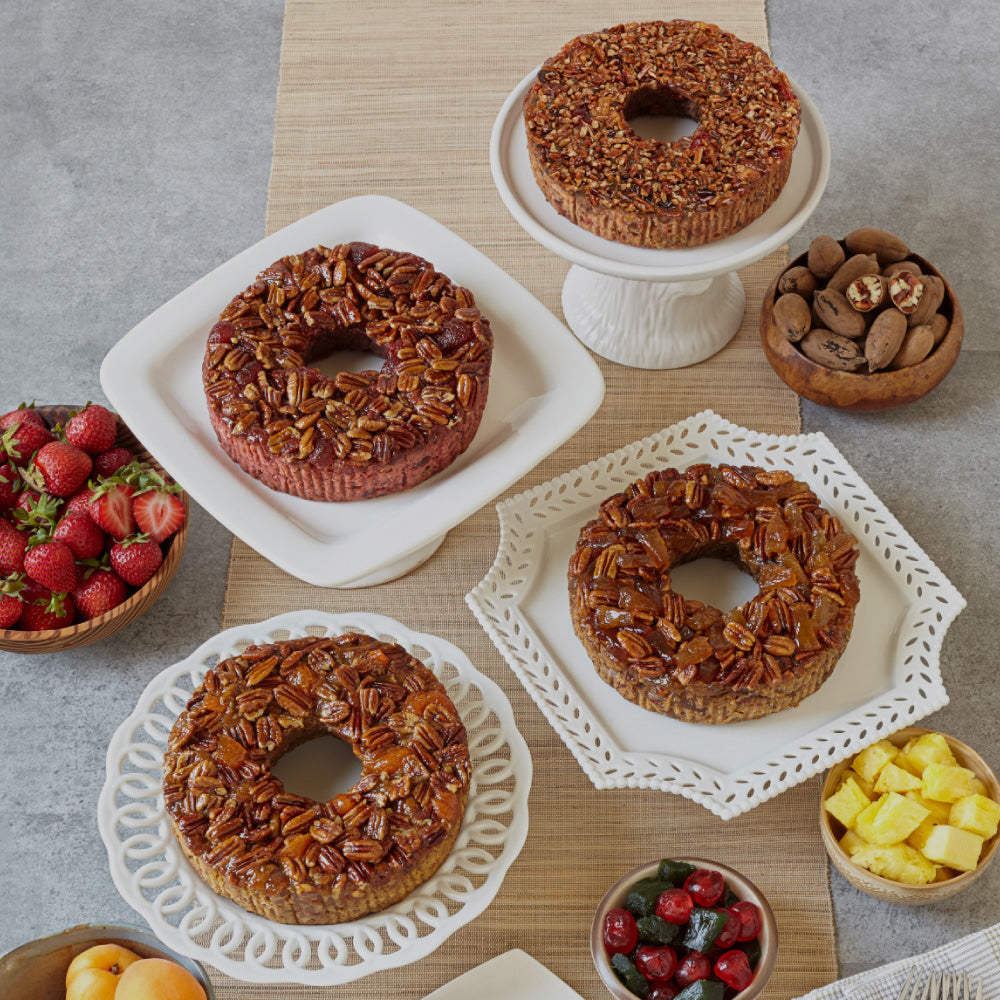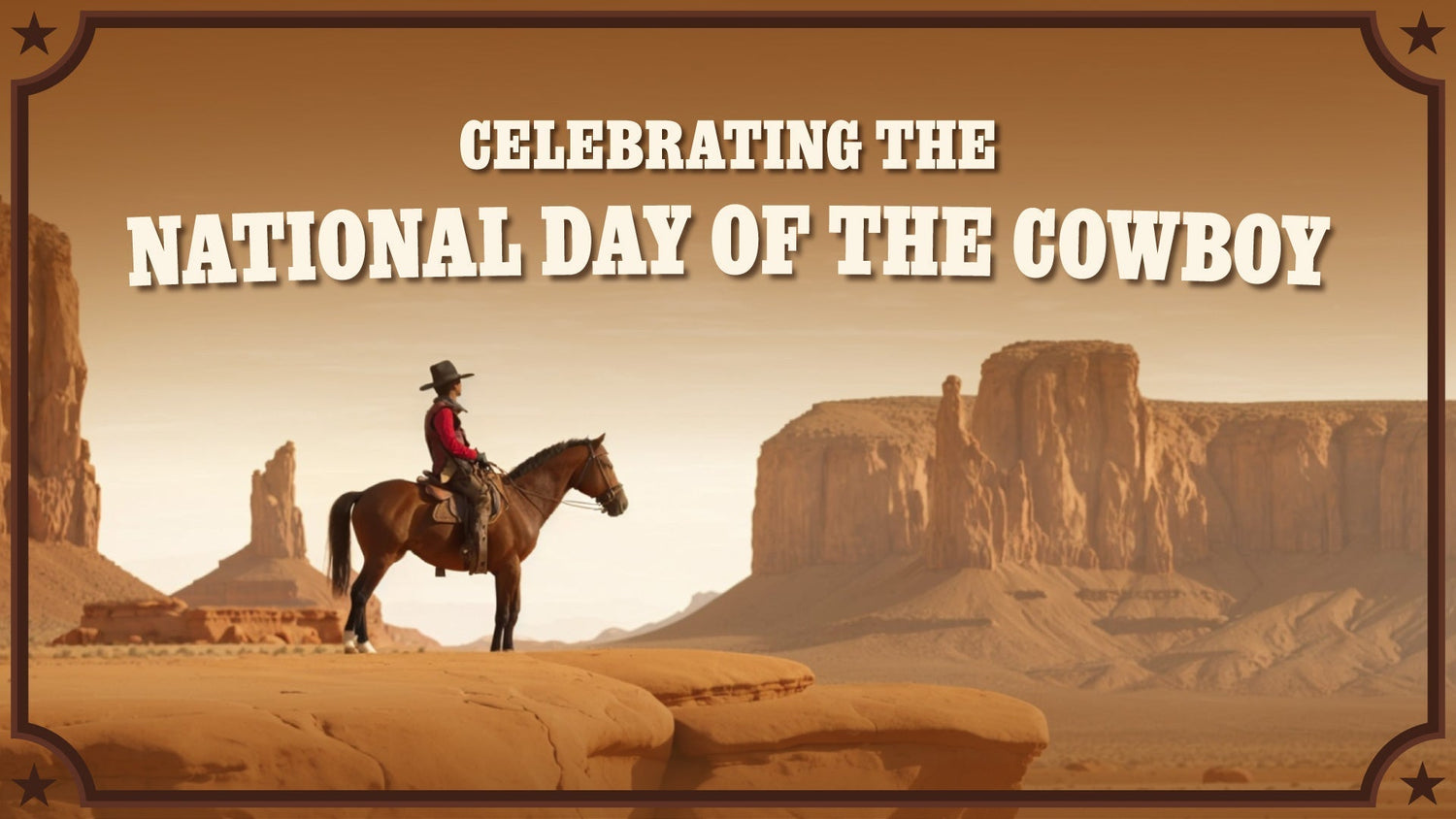The Rich History of Texas Cowboys & Our Iconic Red Lone Star Tin
In the vast tapestry of American history, few figures are as iconic and enduring as the cowboy. That is why every year, on the fourth Saturday of July, we celebrate the National Day of the Cowboy, a day dedicated to honoring the legacy and contributions of cowboys and cowgirls across the United States. This celebration holds a particularly special place in the heart of Texans, where the history of Texas cowboys is interwoven into the enduring legacy of the state's culture.

The Birth of the Texas Cowboy
The history of Texas cowboys is a tale of resilience, adventure, and pioneering spirit, whose origins begin in the early 18th century when Spanish settlers brought cattle and ranching practices to the region. These Spanish cattle herders were skilled horsemen, also known as vaqueros. The vaqueros, a name coined from the words “vaca,” meaning cow, and “ero” meaning worker, were adept at managing large herds of cattle, utilizing techniques and tools that would later be adopted by American cowboys.
The vaqueros introduced the use of lassos, branding irons, and specialized saddles, all of which became essential elements of the cowboy toolkit. Their influence extended to the development of the cattle drive, a hallmark practice associated with the Texas cowboy. The ritual of the cattle drive has become synonymous with the cowboy in the 19th century as Texas transitioned from Spanish to Mexican rule, and eventually to independence. Relying on their knowledge of cattle herding and horsemanship, Cowboys were responsible for herding cattle across vast distances, often enduring harsh weather conditions and the dangers associated with the open plains of Texas.

The Alamo: A Symbol of Texas Independence
No discussion of Texas cowboy history would be complete without mentioning the Alamo. Located in San Antonio, the Alamo is a former mission and fortress that became the site of a pivotal battle during the Texas Revolution. Originally established in the 18th century by Spanish missionaries, the Alamo was intended to convert local indigenous peoples to Christianity. Over time, it evolved into a military garrison and became a symbol of resistance and struggle for Texan independence.
In 1836, a small group of Texan defenders, including notable figures like James Bowie, William B. Travis, and Davy Crockett, held the Alamo against a much larger Mexican force led by General Santa Anna. These defenders, a mix of rugged frontiersmen, farmers, and soldiers, epitomized the indomitable spirit of the early Texas settlers. Their decision to stand and fight at the Alamo, despite overwhelming odds, reflected their commitment to the cause of Texan independence and their belief in the values of freedom and self-determination.
The defenders fought valiantly for 13 days before the fortress fell on March 6, 1836. During this time, they withstood constant bombardment and assaults, managing to inflict significant casualties on Santa Anna's troops despite their limited resources. The siege culminated in a fierce battle where the Texan defenders were ultimately overwhelmed. Although the battle ended in defeat for the Texans, the courage and sacrifice of the Alamo defenders inspired others to continue the fight for independence. ""Remember the Alamo"" became a rallying cry, symbolizing the tenacity and bravery of those who fought and died for Texas' freedom.
Just a few weeks later, Texan forces, galvanized by the memory of the Alamo, won a decisive victory at the Battle of San Jacinto. Led by General Sam Houston, the Texans launched a surprise attack on Santa Anna's forces, resulting in a resounding victory that secured Texas' independence from Mexico. The Battle of San Jacinto was a pivotal moment in the Texas Revolution, with the rallying cry ""Remember the Alamo"" inspiring and galvanizing the troops.
The significance of the Alamo remains a symbol of bravery, sacrifice, and the willful Texan spirit. For cowboys, who often viewed themselves as guardians of the frontier, the Alamo's legacy served as a source of inspiration and a reminder of the values they held dear. The story of the Alamo defenders, standing firm against insurmountable odds, mirrored the cowboys' struggles and triumphs on the open range. The spirit of the Alamo, characterized by courage, resilience, and a fierce sense of independence, continues to be a defining element of the Texas cowboy culture and a lasting emblem of the state's rich history.

Collin Street Bakery's Red Lone Star Tin: A Tribute to Texas Heritage
As we celebrate the National Day of the Cowboy, it's only fitting to highlight a modern Texas icon that pays homage to the state's rich heritage—Collin Street Bakery’s Red Lone Star Tin. Our tin is more than just a container; it's a symbol of Texas pride and tradition. Adorned with the iconic lone star, the outline of the Alamo, and, of course, a cowboy, our tin is a beautiful tribute to the state's history and culture. Included with every purchase of Collin Street’s world-renowned DeLuxe® Fruitcake, our tin is as illustrious as our desserts.
But the significance of the Red Lone Star Tin goes beyond its aesthetic appeal. It represents a connection to Texas' cowboy heritage and the rugged, pioneering spirit that defines the state. Just as cowboys of the past carried their provisions in sturdy, reliable containers, the Red Lone Star Tin is a testament to quality and craftsmanship that stands the test of time.
Honor the Cowboy Legacy with Collin Street Bakery

As we honor the legacy of cowboys and the rich Texas cowboy history, there's no better way to celebrate than by enjoying a piece of Texas tradition with Collin Street Bakery's DeLuxe® Fruitcake. The classic Red Lone Star Tin makes for a perfect keepsake, embodying the values and history we cherish.
This National Day of the Cowboy, we invite you to secure a piece of Texas heritage for yourself or as a gift for loved ones. By purchasing one of Collin Street Bakery's DeLuxe® Fruitcakes, you not only indulge in a delectable treat but also receive the beautifully crafted Red Lone Star Tin—a symbol of Texas pride that you can treasure for years to come.
The National Day of the Cowboy is a time to reflect on the enduring legacy of cowboys and their impact on American history. In Texas, this celebration takes on a special meaning, as we remember the brave pioneers who shaped the state's identity and the legendary battle of the Alamo that impells the Texan spirit.
Collin Street Bakery's Red Lone Star Tin serves as a beautiful tribute to this rich heritage, encapsulating the essence of Texas in a timeless keepsake. So, saddle up and join us in celebrating the National Day of the Cowboy by securing your piece of Texas history with a DeLuxe® Fruitcake from Collin Street Bakery. Order yours today and honor the legacy of the cowboy while indulging in a true Texas delicacy.









Leave a comment
This site is protected by hCaptcha and the hCaptcha Privacy Policy and Terms of Service apply.